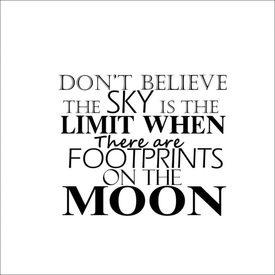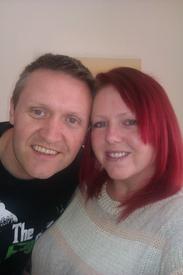Low carb diet..your opinion

Spitspot81
Posts: 208 Member
My gym have advised me to go low carb to shift some body fat. My body fat is 27% so not horrendous, but does need to drop a bit.
They have advised 20% carb intake on a 1600 calorie intake, but since starting I have struggled. I am finding it hard to eat high protein and the lack of wholemeal fibre
Is causing me tummy troubles.
What are your views on low carb diets? I exercise 4 times per week with a mix of cardio and weights
They have advised 20% carb intake on a 1600 calorie intake, but since starting I have struggled. I am finding it hard to eat high protein and the lack of wholemeal fibre
Is causing me tummy troubles.
What are your views on low carb diets? I exercise 4 times per week with a mix of cardio and weights
1
Replies
-
A diet should be adjusted to fit the eater, not the other way around.27
-
I don't buy into the fad diets and I consider the low carb issue a fad diet. Carbs are not the enemy. Don't eat excess carbs and you should be fine. Also, I try to avoid anything that isn't sustainable long term as what's the point if I will just gain the weight back later?5
-
I like carbs, so it's a no from me!4
-
If it's a woe that you enjoy doing and can realistically stick with for the rest of your life, then sure go for it. But, weight loss means nothing if you can't keep the weight off and for many people eating low carb is just not a sustainable method. Weight gain/loss/maintenance comes down to calories. Hit the correct calorie deficit for your weight loss goals and you'll lose the weight.4
-
This content has been removed.
-
The way I see this as a low carber is that carbs are not bad for me, I am bad for carbs. I abuse them, I lack control with them and that ultimately leads to a caloric surplus and weight gain. Because I know that about myself I have to seriously restrict carbs to keto levels coming only from cruciferous vegetables. But again, the macronutrient itself isn't the issue here I am. If you can moderate carbs appropriately I say have at 'er, I'm jealous af
 15
15 -
It really depends on what you like to eat. Many years ago, I did a very strict ultra low carb diet. I couldn't stand it. I got so I couldn't eat eggs or chicken for several years. Many years later, I did Atkins, which is low carb but not as strict as the diet I had done before. I lost about 35 pounds with relative ease. However, I couldn't maintain the low carb for the long term, and eventually I gained the weight back. Next I did a semi-low carb diet, but with more flexibility. I lost 45 pounds and kept it off for several years. What I learned was that there were some carbs I could easily live without, but others that I really really missed - like fruit and whole grains. For me, cutting out sweets and simple carbs helps me lose weight and is pretty easy, but cutting out most or all carbs leaves me feeling very deprived.
And as you noted, constipation is one of the more painful side effects of cutting out most carbs. When doing Atkins, I used Fiber tabs to take care of the problem.2 -
This content has been removed.
-
Usually folks who eat lower carb eat higher fat.... to keep the bowels moving and what not.
I personally focus on SLOWER carbs: green vegetables, legumes, some fruits, 100%whole grains...
I agree with the person above who said your diet should work with you. SLOW carb works with me (these last 14 or so years) because I find it easy to keep my appetite under control.
Some folks find eating low carb does that.
Some folks find that eating a bit of whatever they choose does that...6 -
My trainer (when I had one) wanted me to go low carb too. I looked at him and said, "Yeah, no."
I'm a vegetarian, and it's just not happening for me. By the end of our year's contract, when I had lost 70 pounds and we'd spent a lot of time together, he told me I was probably the client of his who had the best diet who was most compliant and he'd made me totally rethink a lot of what he thought about macros.
I still run into him all the time, because we both belong to the same (a different one) gym now as members.
Anyway, I said all that to say that I don't think taking nutrition advice from a gym is really the way to go about things.
If you want to lose fat, eat less calories than you burn. Macro balance is down to personal preference as to what you like and what makes you feel satisfied with your intake and feeling full.6 -
Low carb is just a simplified way for some people to get into a caloric deficit. For some people, it is too easy to overeat carbs, or not track accurately. They go low-carb, cutting out a huge portion of calories because they are no longer eating calorie-dense foods like pasta and bread, and they lose weight.
I think low-carb is a useful tool for a very limited subset of people, but for most people, like me, it is insufficient and can lead to cravings, binge eating, and as you have noticed: stomach troubles.
Instead of going low carb, what I've done is pay attention to the carbs I eat. Because the quality of your carbs makes a difference.
Carbs that are high on the glycemic index spike insulin levels. This tells the body to prep for glycogen intake, and stops fat storage. In an effort to keep my insulin from spiking and try and maintain as low of level as possible (thus keeping your body in fat-burning mode on a deficit), I've switched to low glycemic carbs. You can Google just about any carb and get a GI number for it. Here's a decent primer on the subject.
Low GI carbs digest slower and don't spike blood-sugar as much as higher GI carbs. Your body is more likely to remain in fat-burning mode for a longer period of time. And you may not get as much of a "sleepy" food hangover when you come down off the sugar rush of high GI carbs.
But the bigger issue is satiation. I get to eat carbs that help keep me feeling full and keep my brain from feeling foggy. I don't go into carb-crazed cravings. And I don't have to eat boatloads of meat.
Remember, a calorie deficit is what is necessary to lose weight. A whole lot of other factors affect what kind of weight you will lose (fat vs. muscle), and how you feel while losing it, which can be just as important for some people.
I, personally, don't like to feel like I'm starving all the time, which is what it feels like to be on a low-carb diet, at least for me. And protein can spike insulin levels as well, so I'm all about having a balance between protein, fats and carbs, and doing my best to keep my insulin levels as low as possible.2 -
It works for some, but not me. Find something that will work for you.0
-
Carbs are my fuel. Screw that.4
-
I hardly ever ate pasta, love it but it doesn't like me. I did eat jasmine rice tho. I hardly ever eat rice, cuz it's hard to stop but what i do eat alot more of since mfp is bread. I always tried to avoid it but never lost weight but now it really sustains me, I have at least 1 or sometimes 2 slices a day0
-
My trainer advised carb, protein, fat combo at every meal & snack...portion control obviously & no more than 8 gm of sugar per meal/snack up to a max of 40 gm daily. Easy-peasy!! Really watch fruit portions esp. grapes, banana, pineapple...high sugar content. It's a balanced eating plan that is doable. To each his own though. Whatever works for each person as long as it works.
 1
1 -
Forums are not the place to get advice like this. It's a bunch of mostly uninformed opinions or anecdotes. I recommend instead asking on a forum for advice on which books to buy to get scientific perspective on whatever your question may be.
I would direct you to two sources that I have found to be EXTREMELY informative on this topic with both coming at it from a totally different perspective:
1. "The Paleo Diet", Cordain -- Ground yourself in the science behind the foods that your body is genetically predisposed to use. Punchline: Its all about micro-nutrient density... macronutrients are mostly irrelevant if you generally eat the right whole foods. This theme of micro-nutrient density applies to whatever diet framework you choose to pursue.
2. "The Art and Science of Low Carbohydrate Living", Volek, Phinney -- ground yourself on why a ketogenic (low carb) diet may be right for you and how to do it properly if you do choose to do it. My key takeaway is that you can't half attempt it and hope to succeed. You need to make a concerted effort to do it right and that means measuring and tracking and really testing whether or not it works for you. If you just reduce your carbs arbitrarily you set yourself up for wasted time and no objective information with which to make decisions on whether or not to stick to the lifestyle change.
Both of these books have an alternative version written specifically for athletes who have unique nutrition timing needs that need to be addressed as well.
Overall punchline: If its worth doing, do it right. Buy and read a book written by a credible author. Nobody on this forum has posted a single credential that gives you a reason to trust their opinion, anecdote, or experience.3 -
Forums are not the place to get advice like this. It's a bunch of mostly uninformed opinions or anecdotes. I recommend instead asking on a forum for advice on which books to buy to get scientific perspective on whatever your question may be.
I would direct you to two sources that I have found to be EXTREMELY informative on this topic with both coming at it from a totally different perspective:
1. "The Paleo Diet", Cordain -- Ground yourself in the science behind the foods that your body is genetically predisposed to use. Punchline: Its all about micro-nutrient density... macronutrients are mostly irrelevant if you generally eat the right whole foods. This theme of micro-nutrient density applies to whatever diet framework you choose to pursue.
2. "The Art and Science of Low Carbohydrate Living", Volek, Phinney -- ground yourself on why a ketogenic (low carb) diet may be right for you and how to do it properly if you do choose to do it. My key takeaway is that you can't half attempt it and hope to succeed. You need to make a concerted effort to do it right and that means measuring and tracking and really testing whether or not it works for you. If you just reduce your carbs arbitrarily you set yourself up for wasted time and no objective information with which to make decisions on whether or not to stick to the lifestyle change.
Both of these books have an alternative version written specifically for athletes who have unique nutrition timing needs that need to be addressed as well.
Overall punchline: If its worth doing, do it right. Buy and read a book written by a credible author. Nobody on this forum has posted a single credential that gives you a reason to trust their opinion, anecdote, or experience.
Sorry but says the person with one post? You dont need to buy a damn book to know stuff. funny funny.12 -
I started a low carb diet in 2014 - I have lost 200 pounds and I feel good physically and mentally . I will admit when I first started the low carb I had no idea what I was doing and just tried to eat nothing but protien - terrible idea - my hair started falling out from lack of good carbs and fat. I researched the GI and was just super confused and not in the mood to count numbers all day since I have a life (lol) so now I use this app to track what I eat - I just stay away from refined sugar, white bread and pasta and potatoes. I am sure that is a semi-low carb diet because I still eat fruit and vegetables and, on occasion, rice but it works for me. Everyone is different though. Oh, and my only credential is losing the equivalent of the weight of a grown human being. My doctor is aware that I cut out those foods and, as long as I am getting carbs that are good for me, she supports it. Ask your doctor - they give great advice.4
-
Opinions and anecdotes are exactly what I expect to find on a forum, and I'll add mine. I was successful with low carb but couldn't sustain it for the long haul. I really like my carbs. I think if low carb foods are your preference, go for it.7
-
I wish I had only 27% body fat! Seriously though, you still need good carbs like those found in fruit and whole grains. Try Ezekiel bread, quinoa, and brown rice. Just use portion control. Very low carb is not maintained long term for most people.0
-
It works well for me when I use it. Lots of leafy green veggies will keep you regular. Good luck!0
-
There are numerous ways to skin a cat. Low carb is just one of those ways. If one prefers it, there is no reason it can't be healthy. It's not for everyone and not required for anything other than personal preference.5
-
I'm in a similar position in that my new trainer wants me to do low carb high fat for fat loss - 65% fat, 25% protein and 5% carbs with a carb binge every 10th day to refeed. I was prepared for him to want me to lower carbs but I'd have been happy if he'd said 20% carbs!
I haven't been sticking to his diet 100% but have upped good fats and reduced carbs a bit, mainly by having eggs and salmon or bacon most days for breakfast, having protein and salad or roasted veg for lunch every day instead of a wrap or sandwich some days, and reducing sweet snacks. It's been ok but I am missing oats and bagels from the breakfast rotation. I've been coming out at around 18-25% carbs most days, friend me if you want a look at my diary for the past 3 weeks.
That said, I don't think it's necessary for fat loss if you like carbs and they make you feel full - CICO and deficit is key. I certainly haven't seen miraculous results in the past 3 weeks by changing to these macros (although one other girl on programme has, but then again she is only on 1400 cals and admits she ate a lot of junk beforehand). I'm enjoying the exercise part of the programme and learning to lift, but I don't agree that this way of eating is a one size fits all miracle way to lose fat.1 -
Personal views? Not for me. Makes me hungry. Causes me anxiety and depression. Causes me digestive issues. Causes me hormonal issues. I don't like the most of the foods involved.
Some people thrive on it, so the above only means that it's not for me.
You don't need it if you aren't doing well on it. The best diet is the easiest one for you to sustain, so forget what your trainer said and do your own thing.4 -
k9education wrote: »spitapot81 wrote: »What are your views on low carb diets? I exercise 4 times per week with a mix of cardio and weights
Honestly, I think very little of them. As a pre-diabetic I don't even believe them necessary or particularly useful for glucose control. If you don't have a medical concern though, then I think they are a waste to even consider unless you simply enjoy eating low carb.
try it, you might be surprised.2 -
It does depend on what you like to eat.
Personally, I'm just not that keen on meat + I have intolerances to peanuts, some tree nuts, and some dairy. And I just simply prefer carbs. 0
0 -
Some people do amazing on a low carb diet but it's not for everyone.
I try and get my carbs from veggies and prefer having wholegrain bread over white bread and will have brown rice over white. But I think that is just because I have a big appetite and find they fill me up more.
I will have chocolate or ice cream a few times a week because....well yummy!.... but I try and limit it because I quickly find myself hungry after those but have usually used up quite a lot of calories on them.
You can lose fat with a general calorie deficit. You should adjust your macro's to suit yourself.0 -
JessicaMcB wrote: »The way I see this as a low carber is that carbs are not bad for me, I am bad for carbs. I abuse them, I lack control with them and that ultimately leads to a caloric surplus and weight gain. Because I know that about myself I have to seriously restrict carbs to keto levels coming only from cruciferous vegetables. But again, the macronutrient itself isn't the issue here I am. If you can moderate carbs appropriately I say have at 'er, I'm jealous af

That is really interesting. By carbs, you mean starchy foods? I have a hard time moderating things like chocolate, candy, cookies, chips, ice cream and cakes, but I find portioning out (and being content with) appropriate amounts of pasta, rice, potatoes, bread and oatmeal is no problem.0 -
You need a calorie deficit, not low carbs.2
-
You can't just switch to low carb and be ok in a day or so. It takes time for the body to adapt. I agree with what other people are saying about whether it suits you and a big part of that is whether you are going to continue this way. Eating low carb is NOT a FAD unless you are doing it only to lose weight then expect to switch back to a more conventional macro split.
Curious, does your gym have any qualifications for giving out nutrition advice?1
This discussion has been closed.
Categories
- All Categories
- 1.4M Health, Wellness and Goals
- 398.2K Introduce Yourself
- 44.7K Getting Started
- 261K Health and Weight Loss
- 176.4K Food and Nutrition
- 47.7K Recipes
- 233K Fitness and Exercise
- 463 Sleep, Mindfulness and Overall Wellness
- 6.5K Goal: Maintaining Weight
- 8.7K Goal: Gaining Weight and Body Building
- 153.5K Motivation and Support
- 8.4K Challenges
- 1.4K Debate Club
- 96.5K Chit-Chat
- 2.6K Fun and Games
- 4.8K MyFitnessPal Information
- 13 News and Announcements
- 21 MyFitnessPal Academy
- 1.6K Feature Suggestions and Ideas
- 3.2K MyFitnessPal Tech Support Questions






















